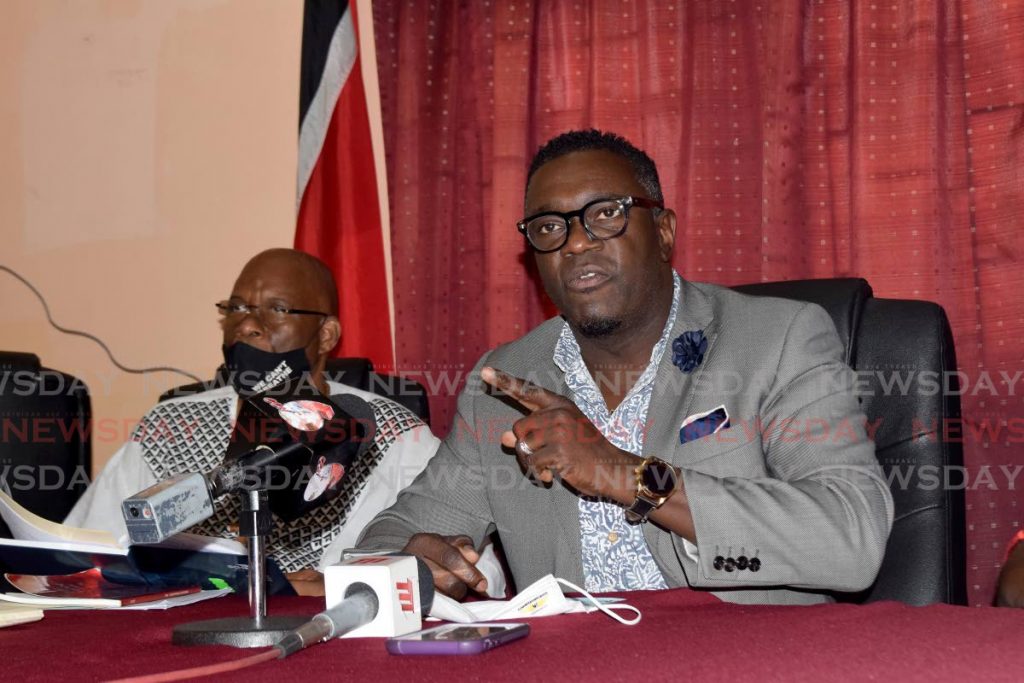WASA attack anti-worker

THE EDITOR: On April 19, the executive director wrote to the president of the PSA, who is on no-pay leave from the authority for trade union purposes, threatening to dismiss him from WASA following an April 21 deadline to “assess his position with the authority.”
On April 23, one newspaper reported that WASA was “seeking legal advice on the way forward in dealing with the situation involving” the PSA president.
WASA’s board and management cannot be serious. If this were not so serious, it would be ludicrous and laughable.
The PSA president has been on no-pay leave since November 2009 until present in his fourth term as a full-time officer of the union based on the right to leave for union purposes established in article 37 of the WASA collective agreement with the PSA.
Such leave for union officers is a hard-won union right that exists in every agency or institution including the public service where the PSA is the recognised union either through collective agreements or the Civil Service Regulations.
At WASA there is no limit on the total time that such time-off must be granted.
Article 37 2(a) says, “An employee (of WASA) who is certified by the association as an elected member of the executive of the association shall on making an application be granted leave of absence without pay for the period of term of office.”
If WASA suddenly has a problem with the time-off provision, it cannot unilaterally change it. Nor can it, violating the collective agreement, threaten dismissal of any employee exercising that union right.
In the public service, the joint effect of Regulation 84(1) of the Civil Service Regulations (themselves subject to negotiation with the PSA) and cabinet minute No 80 of January 15, 1970, regarding leave of absence without pay for trade union purposes published in the Manual of Terms and Conditions of Employment reads a little differently.
Firstly, it says no-pay leave for union purposes “may be granted,” not will be granted (WASA).
Secondly, it goes on: “An extension of the period of absence beyond three years may be granted in the absolute discretion of the Government.”
In other words, the Government through the CPO (the public service employer in law) reserves the right to limit how long no-pay union leave may continue.
But even with the reservation of the power to limit such leave, there is only one occasion on which that power was ever exercised by a government, as far as I am aware.
On the contrary, the present language of the WASA agreement gives no such power to the employer to limit the union right to no-pay leave to be a full-time officer of the union’s national executive.
Surely, a celebrated management expert as the executive director/chairman of WASA must have known that or sought legal advice before attempting to curtail that union right with his threatening letter.
Surely his line minister who praised his managerial credentials when announcing his appointment as executive director and who has power to issue general or specific directions to the WASA board and himself a head of a legal department in the public service just before becoming a political candidate, must have known or would have advised the executive director to seek legal advice before launching his attack on union rights.
This is not the wild west where the law of the jungle – shoot first and ask questions later – abounds.
In the world of recognised majority union status and compulsory recognition of unions and an obligation to engage in collective bargaining, violation of which is punishable by fine and possible jail time, threats against union rights or even threats of such are serious business.
For the chairman/executive director, the board of WASA to launch such an attack and then seek legal advice after is a most glaring and serious indictment on their capability to lead any real transformation of the authority.
This attack on such a critical union right is anti-worker and should invite the most strenuous struggle of the workers and their union and the entire trade union movement in its defence.
Think before you act, not shoot first and ask questions later, Mr Executive Director.
CLYDE WEATHERHEAD
via e-mail

Comments
"WASA attack anti-worker"